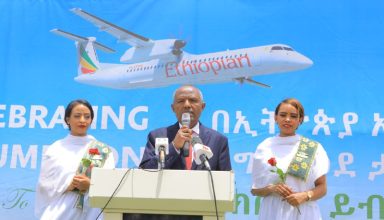UAE's own 'everything app': What e&’s $400 million majority stake in Careem means for users

UAE’s own ‘everything app’: What e&’s $400 million majority stake in Careem means for users

Dubai-based Careem created a new legal entity to facilitate investment in its ‘super app’, the company’s CEO and co-founder has said. In an exclusive interview with Khaleej Times, Mudassir Sheikha said the legal entity — Careem Technologies — will be owned by e&, Uber and Careem’s co-founders and “colleagues”.
Earlier this month, e& announced it is investing $400 million to acquire a majority stake in the super app.
“Today, we offer over a dozen services in the UAE. These businesses act like a group of startups within Careem – a food delivery startup, a grocery delivery startup, a fintech startup, a micro mobility startup, and others. The super app is a platform for these startups and other third-party entrepreneurs to rapidly scale,” he explained.
Calling it ‘chapter 3’ of the app’s journey, Sheikha said the company is bringing a “third partner on board to build the startups into category-leading verticals, and scale the Careem super app across the region”.
He said the other two chapters of the company were simplifying mobility and its tie-up with Uber to grow its ride-hailing business. Under the binding agreement, Uber retains full ownership of Careem Rides.
“e& has invested in a 50.03 per cent majority stake in Careem super app services, including food and grocery delivery, payments and micro mobility,” Sheikha explained. “Beyond funding and commercial support, e& brings enormous value to Careem through their large customer base, extensive regulatory relationships, geographic footprint, portfolio of investments and an extensive network that offers incredible potential for partnerships.”
Additional services
All services will continue to be available on the app in Careem’s ‘chapter 3’, the co-founder said. “There are multiple opportunities for synergy between e& and Careem which will be explored in phases over the months and years ahead.”
Nothing will change for customers. They will still be able to book Careem or Hala cars, as well as order food, groceries, make payments, and use all other services through the super app.
“Any additional services that we introduce on the app will build on our strong foundation in tech, logistics, and payment infrastructure,” said Sheikha.
When asked if the company could see its workforce expanded, he said the company has “extremely” talented teams. “We’re also excited to introduce open roles as and when needed.”
An everything app
e&’s investment will be used to make Careem an “everything app”, according to Sheikha.
“Our goal is to grow our services sustainability so that we can expand the super app to serve more people in more ways across the region – ultimately building the preeminent technology platform of our region.”
He highlighted how super apps have taken off around the world, particularly in Asia. “We believe that the opportunity for a super app in the wider Middle East is huge. There are so many daily frictions across the region that can be solved with digital services.”
Sheikha believes there are no dominant players in the region offering the convenience and value that a super app can. “Super apps enable customers to access multiple services like food and grocery delivery, ride-hailing, and payments using their pre-saved location and payment details.”
The company’s CEO said its customers in the UAE saved Dh50.2 million through subscription service in 2022, with an average saving per customer of Dh105 per month. “Some of the most heavily engaged Careem Plus customers managed to save more than Dh1,000 each month.”
The digital revolution happening in the region will spur demand for super apps, he added.
“The Middle East has among the highest consumer digital engagement in the world. In the KSA and the UAE, digital adoption — the average of users in each industry who have interacted with it through digital or remote channels — stands at 78 per cent. Consumer engagement on apps in UAE, KSA, Egypt, is 1.6 times higher than that of the developed markets of Europe and North America, where websites are still dominant.”
ALSO READ:
source: khaleejtimes

